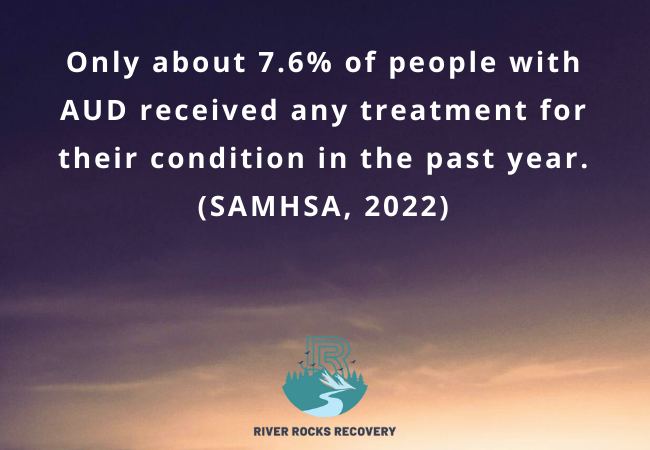Alcohol addiction doesn’t always look the same from one person to the next. For some, it’s a slow progression that begins with casual social drinking and ends in physical dependence. For others, it comes with trauma, mental health struggles, or generational cycles of substance use. Regardless of how it starts, alcohol addiction has one thing in common—it slowly erodes the foundation of your life. Relationships fracture. Health declines. Dreams feel unreachable. But with the right support, it is entirely possible to rebuild.
Alcohol rehab is about far more than just quitting drinking. It’s a path toward rediscovering purpose, repairing damage, and becoming the version of yourself you may have lost along the way. True recovery doesn’t just address the substance; it addresses the whole person. Through structured care, compassionate therapy, and a supportive environment, alcohol rehab helps individuals reclaim their lives in meaningful, lasting ways.
Let’s explore how rehab truly works to rebuild your life, piece by piece.
Creating Stability in the Midst of Chaos
By the time many people seek treatment, their lives often feel unmanageable. Bills are unpaid, routines are disrupted, and even basic self-care can fall to the wayside. Alcohol rehab offers something many people haven’t experienced in years: structure.
Daily schedules that include therapy, group meetings, wellness activities, and meals help reset the body and mind. There’s comfort in predictability, especially when chaos has been the norm for so long. Rehab doesn’t just offer sobriety—it reintroduces stability, and for many, that alone is a powerful first step toward rebuilding.
Additionally, having a dedicated team to support you—people who understand addiction medically, emotionally, and personally—can break the cycle of isolation. That sense of belonging is vital when you’re trying to find your footing again.
Healing the Underlying Causes of Addiction
No one develops an alcohol addiction in a vacuum. Often, substance use begins as a coping mechanism for something else: stress, trauma, depression, anxiety, grief, or unaddressed pain. Without dealing with these root causes, long-term sobriety becomes extremely difficult.
That’s where comprehensive treatment makes all the difference. At an Addiction Treatment Program in Middletown, Ohio, individuals are given the time and space to dig deep into what’s driving their behavior. This is often done through a combination of individual therapy, trauma work, psychiatric care, and group counseling.
It’s not about blame. It’s about understanding. By identifying emotional wounds and distorted thinking patterns, rehab allows people to begin healing from the inside out. That healing forms the true foundation of sustainable recovery—not just white-knuckling abstinence, but learning to live differently.
Rebuilding Relationships with Honesty and Accountability
One of the most painful consequences of alcohol addiction is the way it impacts relationships. Trust is broken. Communication breaks down. Distance grows. But just as addiction damages relationships, recovery has the power to repair them—if approached with honesty, humility, and time.
During treatment, individuals learn how to take accountability without shame, how to make amends in healthy ways, and how to rebuild trust through consistent action. Family therapy, letter writing, and boundaries work can be life-changing.
But perhaps even more important is the relationship you rebuild with yourself. Addiction often comes with deep guilt and self-loathing. Through the rehab process, many people begin to develop self-compassion and self-respect for the first time in years. And when you start believing that you deserve a better life, you begin building one.
Different Levels of Care to Support Your Journey
Recovery doesn’t look the same for everyone—and it shouldn’t. Some people need the structure and intensity of a full-day program. Others may thrive with flexibility and part-time support. That’s why having multiple levels of care is essential.
In some cases, a Partial Hospitalization Program in Middletown, Ohio may be the ideal starting point. PHPs provide a high level of clinical support and daily programming while allowing individuals to return home in the evenings. It’s a powerful option for those who don’t require inpatient care but still need a deeply immersive treatment experience.
From there, many transition into an Intensive Outpatient Program in Middletown, Ohio. IOPs offer several hours of therapy multiple days per week, helping people maintain progress while slowly reintegrating into work, school, or family life. It’s about striking the right balance between treatment and real-world responsibilities.
This step-down model ensures that as people grow stronger in their recovery, the support they receive continues to meet them where they are—never too much, never too little.
The Importance of Continued Support and Flexibility
One of the most dangerous myths about addiction recovery is the idea that it ends when formal treatment does. The truth is, rebuilding a life takes time—more than a few weeks or even a few months. That’s why long-term support is so important.
Flexible, accessible care options like an Outpatient Treatment Program in Middletown, Ohio play a critical role in preventing relapse and supporting long-term growth. These programs provide ongoing therapy, relapse prevention education, and community connection without requiring full-time participation. Many people continue attending outpatient groups or therapy for years after completing higher levels of care.
The ability to access continued support while also pursuing goals like employment, education, or parenting is what makes outpatient care so valuable. Recovery has to fit into real life—and outpatient programs help make that possible.

Building a Life That Feels Worth Staying Sober For
Sobriety isn’t just about abstaining from alcohol. It’s about building a life you actually want to live. That’s what true recovery is all about: creating a life that no longer includes alcohol because it simply doesn’t need to.
In rehab, clients often begin rediscovering passions they forgot they had—writing, music, fitness, spirituality, or simply spending time with loved ones. They set goals, explore new routines, and learn how to experience joy and connection without substances.
Programs frequently include job training, volunteer opportunities, wellness classes, and skills development. These aren’t just “extras”—they’re essential. Because when you have something to look forward to, when you start waking up excited for the day ahead, sobriety becomes something to protect, not just something to maintain.
And let’s be clear: joy in recovery isn’t just possible—it’s the point. Alcohol rehab helps people not only survive, but thrive.
Why Choose River Rocks Recovery
Choosing a treatment center is more than a logistical decision—it’s a personal, life-altering one. At River Rocks Recovery, we understand what’s at stake when someone reaches out for help. That’s why every part of our program is built around one core principle: your recovery should feel like a return to yourself, not just a departure from alcohol.
As a leading Addiction Treatment Center Middletown, Ohio, we offer a full continuum of care tailored to your individual needs, goals, and experiences. Our team includes licensed therapists, medical professionals, and peer support staff—many of whom have walked their own paths through recovery. This gives us not only clinical insight, but genuine empathy and real-world perspective.
From day one, we prioritize comfort, dignity, and community. Our campus offers a calming environment that encourages healing. Whether you’re just starting your journey or returning for continued care, we’re committed to helping you feel safe, seen, and supported.
River Rocks Recovery specializes in trauma-informed care, dual diagnosis treatment, and holistic approaches that support mind, body, and spirit. We know recovery isn’t one-size-fits-all, and our approach reflects that—through flexible scheduling, evidence-based therapy, and aftercare planning designed to empower long-term success.
We don’t just help you stop drinking—we help you start living again. Because you deserve a future that feels hopeful, fulfilling, and free.
Conclusion
Alcohol rehab is not the end of your story—it’s the beginning of something entirely new. It’s the gateway to a life where you wake up clear-minded, hopeful, and connected to what truly matters. It’s where shame gives way to strength, and fear is replaced with the belief that you are capable of transformation.
The damage caused by alcohol addiction can feel overwhelming—but with support, recovery becomes a real and lasting possibility. Whether you’ve been struggling for years or just recently realized that drinking is impacting your life, it’s never too late to reach out.
At River Rocks Recovery, we’re here to help you rebuild from the inside out—with dignity, care, and respect. Through a personalized treatment approach and a compassionate team that truly cares, you’ll gain the tools and support needed to not just get sober, but stay sober. Call us today at (888) 905-6281 to take the first step toward the life you deserve. Healing starts the moment you say, “I’m ready.”
Frequently Asked Questions (FAQs)
What happens during alcohol rehab treatment?
Alcohol rehab typically begins with medical detox, followed by therapy, counseling, and support programs that focus on helping individuals understand their addiction and develop tools to maintain long-term sobriety.
How long does alcohol rehab usually last?
The length of alcohol rehab varies based on individual needs and treatment plans. Some people benefit from short-term programs (30 days), while others may require 60, 90 days or longer to support lasting recovery.
Is outpatient treatment effective for alcohol addiction?
Yes, outpatient treatment can be highly effective, especially for those with strong support systems or less severe addiction. It provides flexibility while still offering structured therapeutic support.
What are the benefits of a Partial Hospitalization Program for alcohol rehab?
A Partial Hospitalization Program provides intensive care during the day while allowing clients to return home in the evening. It’s ideal for individuals who need substantial support without full-time residential treatment.
How do I know if I need professional alcohol rehab?
If alcohol is negatively affecting your relationships, health, job, or sense of well-being—and attempts to stop on your own have failed—professional rehab can provide the structure and support you need to recover.

